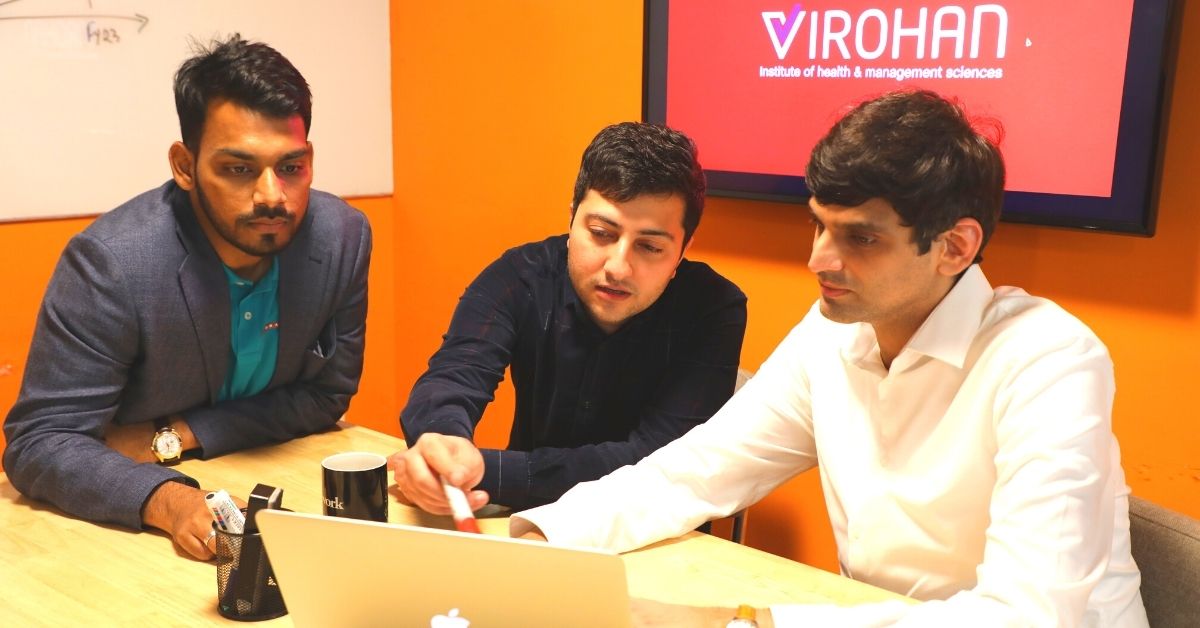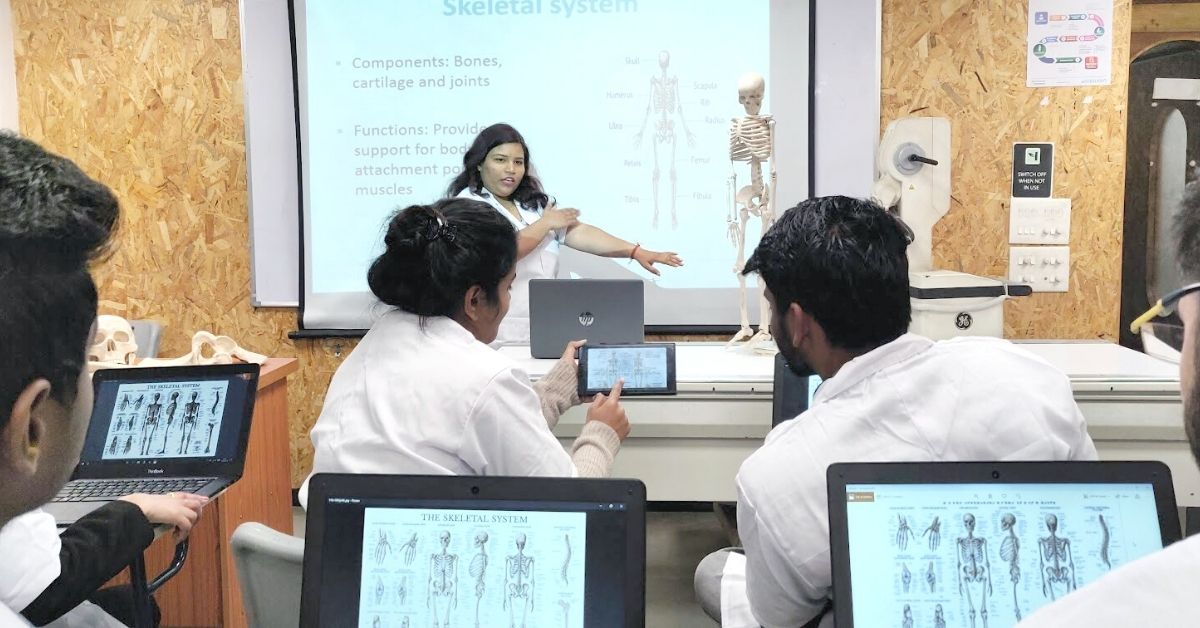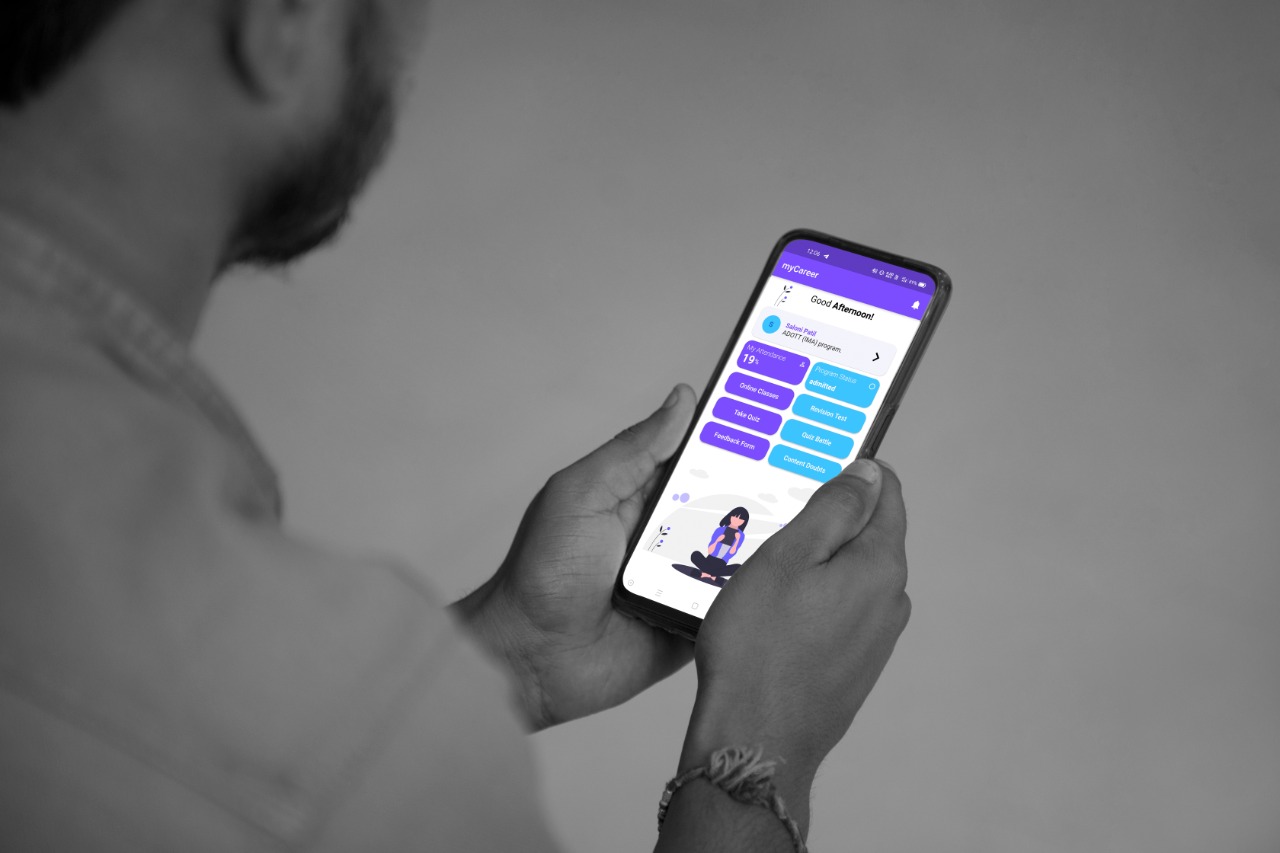Meet the 3 Friends Creating an Army of Specially-Trained Healthcare Workers for India
Virohan, the Gurugram-based healthcare edtech startup founded by Nalin Saluja, Kunaal Dudeja and Archit Jayaswal, trains and certifies allied healthcare professionals (AHPs), who form the vital backbone of the healthcare sector in India and abroad.

When you think about healthcare, your mind often thinks of doctors and nurses. What you probably don’t think about are the medical lab technicians (MLTs), operating theatre technicians (OTTs), radiology technicians, dialysis technicians, hospital administration staff, emergency medical technicians (EMTs) or even the phlebotomist who comes to collect your blood samples at home for a COVID-19 test. These workers are called allied healthcare professionals (AHPs).
Although they are critical cogs in the delivery of healthcare services, India could need approximately 70 lakh (7 million) AHPs by 2024, according to Dr Sudhir Parikh, secretary-general of Global Association of Physicians of Indian Origin (GAPIO). As of today, India trains only about 1.5 lakh AHPs per year, which is way short of what’s required.
However, according to Nalin Saluja, the co-founder of Virohan, a Gurugram-based healthcare edtech startup, the problem is a lot worse. India needs about 40 million AHPs by the end of this decade, and as of today, only 10 million are employed, of which barely 7-8% are trained and certified. To address this staggering gap in AHPs, Nalin teamed up with two of his friends, Kunaal Dudeja and Archit Jayaswal, to establish their startup in 2018.
“It’s a demand-led edtech platform for the higher education industry. Our belief is that higher education in India has been failing because it’s supply driven and not demand driven. We want to change this drastically. Making it demand driven means whatever the industry requires that’s what students should be trained in. As we are solving for the higher education market, we are starting off with AHPs in the healthcare sector,” says Nalin, speaking to The Better India.
Virohan has a technology-driven training platform, which is able to train personnel, both online and in their allied campuses. They deliver standardised quality learning outcomes to our students at scale.
“To address this shortfall in AHPs, we think edtech is required here given the scale of the problem. Doing smaller interventions which can address specialised requirements doesn’t work since we have to train millions. It’s important to have a scalable training model,” adds Nalin. Since 2018, the startup has trained and certified more than 3,000 AHPs across India.
A Mother’s Inspiration
It is important to note that none of the three co-founders have a background in medicine. While Kunaal has about 15 years of experience in the retail industry, Nalin is an engineer with a background in technology and product development, and Archit is a chartered accountant by trade.
Inspiration for the three to come together and establish Virohan came from Kunaal’s mother, Dr Mridu Dudeja, a microbiologist and former Dean at Jamia Hamdard Medical University, who often spoke of how the quality and the number of AHPs in India is shockingly inadequate.
“Kunaal’s mother is a senior doctor and a member of the Allied Healthcare Council of India, a body set up by the Government of India to regulate AHPs. She understood this problem and the scale of the problem very closely. A lot of the inspiration for our work came from her words. While we have training verticals for existing AHPs who are already working in the ecosystem, our bread and butter is training and certifying new AHPs to make up for the 30 million shortfall,” explains Nalin.
Since none of the co-founders have a background in medicine, they have enlisted the expertise of Dr Anurag Shahi, Head of Academics at Virohan, who has an MBBS and MD from AIIMS-Delhi. Assisting him is Dr Deepshikha Gupta, a former consultant at Fortis Hospital. They do the work of designing the standardised course content and pedagogy at Virohan, alongside what Nalin calls a ‘highly qualified set of experts in the field’.
Approximately 60% of the students who enroll in these courses are school graduates while 40% are college graduates. The rest are existing AHPs already working in the healthcare sector.
“These students train at Virohan in search of employability because most of the higher education available to them does not help them in this regard. We offer multiple options in terms of the training programmes. We figure out what’s the demand in their local geography and counsel them about their career options. About 45% of our students come from families with annual incomes less than Rs 2.5 lakhs. Another 40% come between the Rs 2.5 lakhs and Rs 4 lakhs per annum income bracket. Those coming from families earning above Rs 4 lakhs per annum make up about 15%,” informs Nalin.
Meanwhile, about 53% of their students are women, and 63% of them are from metro cities.

The Curriculum
If you enroll into a Virohan programme, the classes will primarily happen at a campus near you. The startup is working with existing colleges and universities and using their underutilised infrastructure for their training programmes. Students show up to class, where there is a ‘facilitator’, who runs the class. These facilitators are not subject matter experts, but anyone who qualifies as a grade teacher. Their task is to engage the class, focus on students, “exhibit empathy” for them and “a genuine interest in ensuring they succeed”.
“The class is run by a facilitator. Students sit together and watch a video on the projector. Once they watch a video on the projector, they answer a quiz on their own phones. Once this quiz is done, the results are displayed on a projector and an app which the teacher has installed. In the classroom, our technology platform synchronises all the devices belonging to students, teachers, and the projector. Once synchronized, it’s the technology that leads the entire class. No video is longer than five minutes. The facilitator can stop the video at any time and ask students if they’re understanding what’s being taught. About 80% of the students have to answer 80% of the questions correctly for the class to move on,” explains Dr Deepshikha,
Following a certain number of quizzes and at the end of a given learning unit, every student engages in a physical activity in the classroom. When one unit of training is done, Virohan gets students to stand up and perform physical activities designed to reinforce the technical training they’ve received and further develop life skills. They also have an English language and life skills curriculum as well. These physical activities bridge the gap between the technical training they receive and English language/life skills training. That’s how a classroom proceeds.
A typical programme has about seven months of theoretical training, followed by five months of hands-on internships which happen in real hospitals, laboratories and diagnostics centres. After they are done with their internship, they get certified and get jobs.
Fees for their annual training programme ranges from Rs 35,000 to Rs 1.5 lakh per annum, depending on the kind of programme.
“They pay their fees during the training programme, but if they want to pay afterwards, Virohan has tie ups with multiple financing partners. With financing, they are able to pay for training after they’re done and get a job. In programmes we run with GE Healthcare, it’s the Tata Trust which provides students the requisite financing. Meanwhile, we have other financial partners, who offer low interest loans to students, which can be paid over four years. The terms of these loans differ from one financing partner to the next. In other words, many of our students end up paying only after they’ve completed their training and start their job,” claims Nalin.
Training programmes for the job of a phlebotomist is priced at about Rs 35,000 per annum. In comparison, their starting salary is anywhere between Rs 15,000 to Rs 20,000 per month, and they also earn strong incentives for driving sample collections over and above the requirement.

Dr Deepshikha explains how the courses are designed using an example. “In the basic diploma course for Medical Laboratory Technician (MLT), we are covering all the basic tests that a lab assistant must know to do without much depth in the analysis part. When we move onto the advanced diploma course for MLT, we are also covering more of the managerial aspects like how to plan better, handle the entire laboratory, manage three-four assistants, and for this requires some depth in teaching them how to analyse tests, administration of a lab, and also team management and leadership,” she explains.
“For the EMT (Advanced) programme, we teach them to handle more complex emergency medical situations like a pregnancy or a road accident which results in a broken femur or an open skull, etc. The course for advanced EMT is priced at Rs 35,000 too, while starting monthly salaries for trainee level executives is anywhere between Rs 10,000–Rs.20,000,” she adds.
Virohan claims to have over 650 hospital partners in the country, where their students do their internships and subsequently get placed. They have tie-ups with all the major hospital brands and diagnostic centres, but most students end up going to smaller ones because that’s where a majority of healthcare in India is delivered, particularly in our cities.
So far, the startup has raised a total $3 million across Seed and Series A rounds from Elea Foundation for Ethics in Globalization, Rebright Partners, Yunus Social Business Foundation and Artha Lesing.
“The long term objective is to solve the demand and supply gap in higher education. More importantly, the youth need jobs and higher education but India unfortunately does not provide them with the necessary skill in the job market. At Virohan, we deliver jobs for students, and address an urgent requirement in the healthcare sector,” concludes Nalin.
(Edited by Yoshita Rao)
Like this story? Or have something to share? Write to us: [email protected], or connect with us on Facebook and Twitter.
If you found our stories insightful, informative, or even just enjoyable, we invite you to consider making a voluntary payment to support the work we do at The Better India. Your contribution helps us continue producing quality content that educates, inspires, and drives positive change.
Choose one of the payment options below for your contribution-
By paying for the stories you value, you directly contribute to sustaining our efforts focused on making a difference in the world. Together, let’s ensure that impactful stories continue to be told and shared, enriching lives and communities alike.
Thank you for your support. Here are some frequently asked questions you might find helpful to know why you are contributing?


This story made me
-
97
-
121
-
89
-
167











